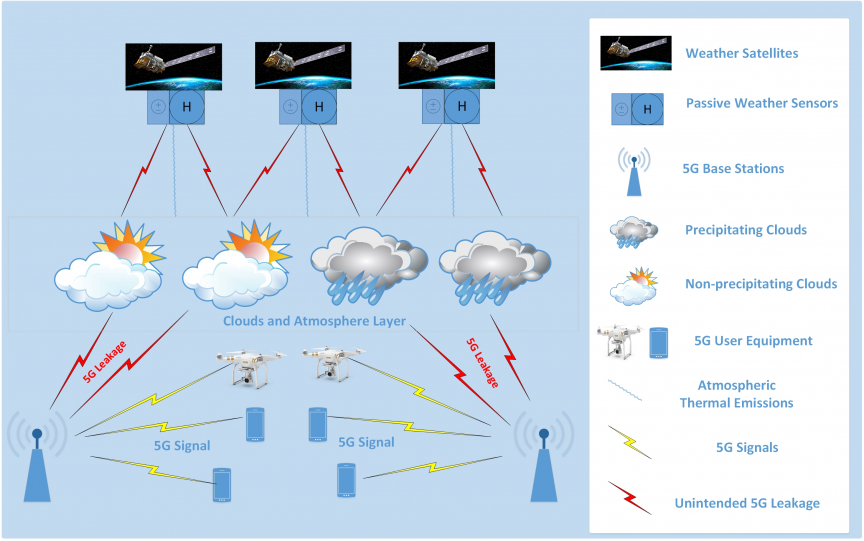Rutgers University September 24, 2020
The signals from the 5G frequency bands potentially could leak into the band used by weather sensors on satellites that measure the amount of water vapor in the atmosphere and affect weather forecasting and predictions. Researchers at Rutgers University used computer modeling to examine the impact of 5G “leakage” on forecasting the deadly 2008 Super Tuesday Tornado Outbreak in the South and Midwest. Based on modeling, 5G leakage power of -15 to -20 decibel Watts affected the accuracy of forecasting of precipitation (by up to 0.9 millimeters) during the tornado outbreak and temperatures near ground level (by up to 2.34 degrees Fahrenheit). According to the researchers if we want leakage to be at levels preferred by the 5G community, we need to work on more detailed models as well as antenna technology, dynamic reallocation of spectrum resources and improved weather forecasting algorithms that can take into account 5G leakage…read more. Open Access TECHNICAL ARTICLE

This image shows leakage from a 5G cellular network affecting sensors on weather satellites…. Credit: Mohammad Yousefvand